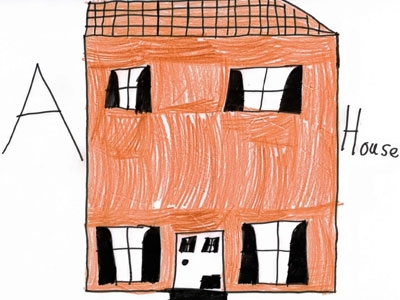
A teenager’s death in a house fire could have been prevented if professionals had taken a more proactive and joined-up approach to her care, a serious case review has found.
Kelly Button, 17, died in December 2012 at the Bryn Melyn children’s home in Shropshire after barricading herself into her bedroom using a mattress, and then setting it on fire.
Button had been in the care of Walsall council’s children’s services for nearly two years, during which time she was accommodated in seven different children’s homes.
‘Isolation’
Publishing its review last month, Walsall’s safeguarding children board said the teenager had a history of challenging behaviour and it was ‘predictable’ that she would eventually cause harm to herself or others.
But the safeguarding board also made over 50 recommendations to the agencies involved in her care, who were criticised for failing to meet Button’s complex needs.
Button was placed in the care of the local authority in 2011 and, despite expressing a wish to be near her family, was placed in homes some distance away, the review found.
It found she had faced ‘constant change and isolation’ in the placements, five of which were in remote rural areas rather than the urban environment she was used to.
‘Unacceptable delays’
The council, education and health partners also failed to define whether the first two residential placements were single agency or jointly funded, which led to a systemic delay.
The review found that while looked-after children (LAC) reviews and visits took place, they were sometimes late and actions agreed at meetings were not followed through.
One notable delay was the agreement of funding for a children and adolescent mental health assessment, which resulted in Button not receiving the appropriate therapeutic intervention until 20 months after she became a looked-after child.
“The focus of the panels appeared to be on costs rather than upon quality assurance of planning to seek the best outcomes for her,” the review stated.
‘Scant probing’
Button repeatedly went missing, assaulted care home members and placed herself in vulnerable situations. But there had also been ‘scant probing’ into her behaviour.
A tendency to barricade herself in her room had been identified early, but a robust risk assessment or any identification of what triggered this behaviour was found to be lacking.
Secure accommodation was also never properly explored as an option, even though this would have allowed Button’s needs to be assessed in a safe environment.
It also found little evidence professionals from any agency were aware of, or acknowledged, important events in Button’s life, such as her birthday. “Some attention to these issues may have boosted her self-esteem and promoted her well-being,” it stated.
‘Missed opportunities’
Before going into the care, Button had also made four allegations of physical abuse against her uncle, who was looking after her at the time. She alleged that he had also been violent towards her siblings.
Social services made a written agreement with the uncle that he would stop ‘physically chastising the children’, the review found, but no further action was taken.
Under Walsall council’s care, child protection procedures were initiated but there was never a thorough investigation and professionals relied on the written working agreement. A failure to properly investigate these allegations resulted in Button’s feelings of never being believed, which could have been a contributing factor to her anger, the board said.
‘Out of sight, out of mind’
The review concluded that the lack of a coordinated, holistic and robust multi-agency response to Button’s needs indicated an ‘almost out of sight, out of mind’ culture.
It recommended that more enquiry into the root cause of a young person’s aggression, risk taking and disruptive behaviour must be taken and, when there is an escalation of this behaviour, the option of secure accommodation should be regularly reviewed.
Robert Lake, chair of Walsall’s safeguarding children board, said: “It was important we requested a review of this young person’s case so that we can understand how to work better together and to do our best to ensure that we are keeping children safe.
“Each agency represented on the board has committed to taking the necessary actions to improve practice, including developing action plans on each of the recommendations.”
Bob Yetzes, chief executive of Bryn Melyn care, added: “We have extended our deepest condolences to Kelly’s family and friends. Such a tragedy will always make an organisation like ours, one with true, professional integrity, look hard at everything we did then, and everything we do now to support and protect young people.”


 ‘Dear Sajid Javid: please end the inappropriate detention of autistic people and those with learning disabilities’
‘Dear Sajid Javid: please end the inappropriate detention of autistic people and those with learning disabilities’ Ofsted calls for power to scrutinise children’s home groups
Ofsted calls for power to scrutinise children’s home groups Seven in eight commissioners paying below ‘minimum rate for home care’
Seven in eight commissioners paying below ‘minimum rate for home care’ Children and young people with SEND are ‘valued and prioritised’ in Wiltshire, find inspectors
Children and young people with SEND are ‘valued and prioritised’ in Wiltshire, find inspectors 
 Facebook
Facebook X
X LinkedIn
LinkedIn Instagram
Instagram
As a non-social care person, I am just appalled that any of the placements described above could ever be thought appropriate for a teenager – one girl with two carers in a place you don’t know !!!!!- and to be moved so many times!!!!! – and to have so many people telling you that you are uncontrollable!!!!!! And what did she have to do to get people to see that she was going to do herself serious harm……I couldn’t believe the number of times there was police involvement………Is this – is consistent care from peopel who know you not even thought important?